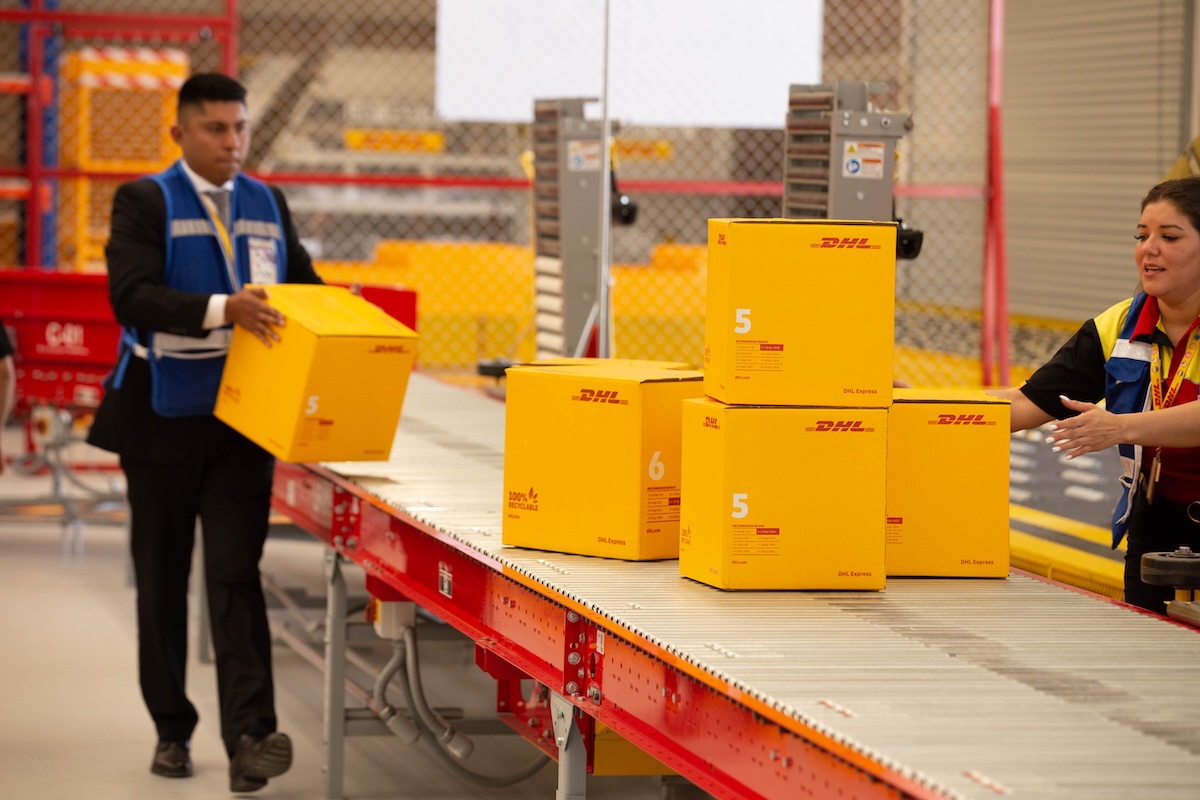
DHL Express, the German shipping giant known for its expedited delivery services, has officially suspended shipments to U.S. customers valued at $800 or more after President Trump lowered a key customs threshold for imported goods.
Shares of parent company Deutsche Post (DHL.DE) have climbed more than 3% since the suspension became public.
DHL announced the change on April 19, saying the new policy would take effect April 21. The company cited updated U.S. customs regulations that lower the threshold for formal processing from $2,500 to $800.
For now, DHL has opted not to absorb the added costs and delays tied to the new rules.
While the lowered threshold may seem minor, it could become a meaningful burden on shipping companies, upending cost structures, increasing workloads, and complicating the flow of e-commerce transactions.
Consider this: U.S. Customs and Border Protection (CBP) processes more than 1 billion low-value imports — so-called “de minimis” shipments —every year.
Subjecting a greater share of these to formal scrutiny could disrupt supply chains and squeeze margins for both shippers and producers.
So far, investors haven’t balked at DHL’s decision. But that could change if foreign e-commerce retailers are forced to raise prices or rethink their U.S. fulfillment.
What does this mean for Temu and Shein?
Shipping companies may end up as collateral damage in the Trump administration’s escalating trade war with China.
Experts note that the previous $2,500 import threshold allowed low-cost manufacturers to send tens of millions of packages to U.S. consumers each year with minimal oversight from CBP.
“We had 1.4 billion de minimis shipments last year,” said Kimberly Glass, president of the National Council of Textile Organizations. “These items don’t pay a tariff. There’s no scrutiny. Which essentially equates to four million boxes entering the U.S. every day, with little information and no one held accountable.”
China-based Temu and Singapore’s Shein are two of the biggest beneficiaries of this system, using de minimis shipping to build sprawling, ultra-efficient cross-border supply chains.
That model helps explain how Shein scaled into a $30 billion business, according to Portless founder Izzy Rosenzweig.
As of 2023, Temu and Shein may collectively account for more than 30% of all daily shipments into the U.S., according to the House Select Committee on the Chinese Communist Party.
Your email address will not be published. Required fields are markedmarked